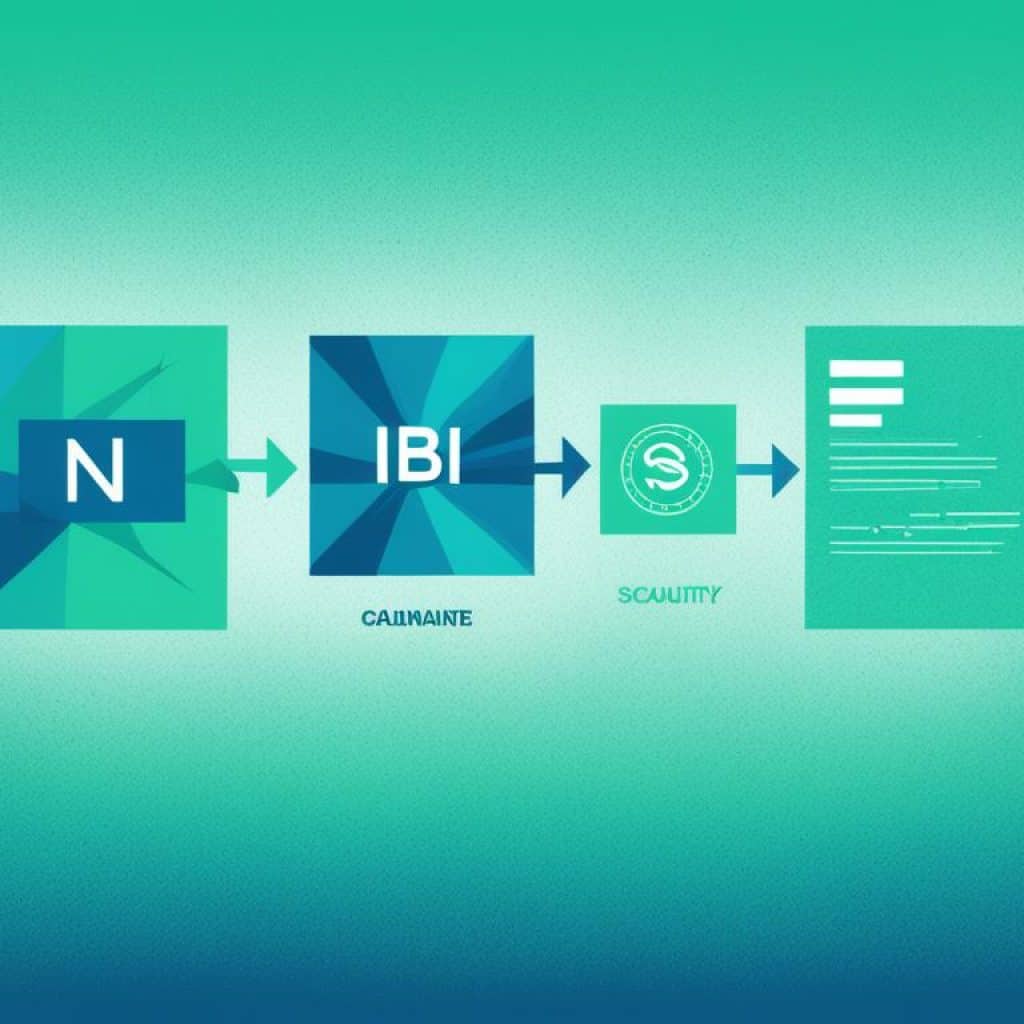Have you ever been the target of a scam in the Philippines? If so, you’re not alone. Scammers are constantly finding new ways to trick unsuspecting individuals and steal their hard-earned money. But fear not! In this comprehensive guide, we will walk you through the process of reporting a scammer in the Philippines and taking a stand against these fraudulent activities.
Scammers often use the names of public officials and business leaders to deceive the public. They prey on people’s trust and exploit their vulnerabilities. So, how do you protect yourself and others from falling victim to these scam artists? The answer lies in reporting them.
In this article, we will explore the step-by-step process of reporting a scammer in the Philippines. From online investment scams to fake vaccine scams, we will cover various types of scams and the appropriate authorities to contact. By familiarizing yourself with the scam reporting process, you can play an active role in combating these fraudulent activities.
So, are you ready to take a stand against scammers? Let’s dive into the world of scam reporting in the Philippines and empower ourselves with the knowledge and tools to fight back!
Key Takeaways:
- Reporting scammers in the Philippines is crucial to protect yourself and others from fraudulent activities.
- Scammers often use the names of public officials and business leaders to deceive the public.
- Understanding the different types of scams and the appropriate authorities to contact is essential for effective reporting.
- Gathering evidence and providing detailed information can assist the authorities in their investigation and prosecution efforts.
- Staying informed and vigilant can help you avoid falling victim to scams in the first place.
Online Investment Scams in the Philippines
The Department of Finance (DOF) has issued a warning about the prevalence of online investment scams in the Philippines. These scams specifically target Filipinos, using the names of public officials and celebrities to trick individuals into fraudulent investment schemes. The DOF emphasizes that none of these investment opportunities are legitimate and urges the public to exercise caution and report any suspicious activities.
These online investment scams often lure victims with promises of quick riches or high returns on investments, particularly in the realm of cryptocurrency. However, the DOF stresses that these schemes are designed to deceive and defraud unsuspecting individuals. It is crucial for Filipinos to remain vigilant and take appropriate action against such scams.
If you come across any suspicious investment opportunities online, whether through social media platforms, websites, or direct messages, it is essential to report them immediately. Reporting these scams not only helps protect yourself but also contributes to the larger effort to combat fraudulent activities in the country.
In the next section, we will explore the steps for reporting scams to the Securities and Exchange Commission (SEC) in the Philippines, as well as other relevant agencies that handle scam-related cases.
| Signs of Online Investment Scams | Actions to Take |
|---|---|
| Promises of guaranteed high returns | Report the scam to appropriate authorities immediately |
| Pressure to make quick investment decisions | Collect evidence such as screenshots and conversations |
| Requests for personal and financial information | Block the scammer and report the incident to the relevant agencies |
| Use of famous names or celebrities to gain credibility | Share your experience with others to raise awareness |
Reporting Scams to the Securities and Exchange Commission (SEC)
When encountering suspicious investment schemes, it is crucial to report them to the Enforcement and Investor Protection Department of the Securities and Exchange Commission (SEC). The SEC plays a vital role in investigating and prosecuting fraudulent activities in the investment sector.
If you come across a scam or suspect fraudulent activities, you can reach out to the SEC through email or landline. Provide them with any evidence or information you have related to the scam, as it can greatly assist their investigation and prosecution efforts.
Reporting investment scams to the SEC not only helps protect yourself but also ensures the safety and security of other potential investors. By taking action, you play a crucial role in keeping the investment landscape transparent and free from fraudulent activities.
SEC Reporting Contact Information:
- Email: en*********@*****ov.ph
- Landline: +63 2 8818 1672
Be sure to gather all available evidence, such as screenshots, transaction receipts, and any other relevant information, before reaching out to the SEC. This evidence will support the SEC in their investigation and increase the chances of successfully bringing scammers to justice.
Remember, reporting investment scams to the SEC is an important step in protecting yourself and others from falling victim to fraudulent schemes.
| Advantages | Disadvantages |
|---|---|
| The SEC has the authority to investigate and prosecute investment scams. | Reporting scams may require substantial evidence-gathering and documentation. |
| The SEC’s actions can lead to the prevention of future scams. | The investigation process may take time, delaying justice for victims. |
| Reporting scams contributes to maintaining a transparent investment environment. | Scammers may try to evade prosecution or continue their fraudulent activities. |
Reporting Scams to the National Bureau of Investigation (NBI)
The National Bureau of Investigation (NBI) plays a crucial role in the fight against scams and fraudulent activities in the Philippines. The NBI Anti-Fraud Division is dedicated to investigating and addressing reports of malicious messages, as well as other types of scams that affect individuals and businesses.
If you have fallen victim to a scam or have encountered suspicious activities, reporting them to the NBI is an essential step in seeking justice and protecting others from becoming victims. The NBI provides multiple channels for reporting scams, ensuring ease of access for individuals seeking assistance.
Giving Detailed Information and Evidence
When reporting a scam to the NBI, it is important to provide them with as much detailed information and evidence as possible. This includes:
- The nature of the scam and how you became involved
- Any relevant names, email addresses, phone numbers, or social media profiles of the scammers
- Copies of messages, emails, or other communication exchanged with the scammers
- Payment receipts or transaction details, if applicable
Providing comprehensive information and evidence can assist the NBI Anti-Fraud Division in conducting thorough investigations and taking appropriate legal action against scammers. It is important to be as accurate and detailed as possible to aid in their efforts.
Contacting the NBI Anti-Fraud Division
The NBI offers multiple ways to report scams and fraudulent activities:
- Phone: You can contact the NBI Anti-Fraud Division through their hotline at (02) 8523-8231 to 38 or (02) 8525-6028.
- Email: Send an email detailing the scam and providing relevant information to an*******@*****ov.ph.
- Online Report: Visit the NBI website at https://nbi.gov.ph/ and submit a report through their online reporting system. Provide all necessary information as requested on the form.
- Facebook: Send a private message to the official NBI Facebook page with the details of the scam, evidence, and any pertinent information.
Remember to provide your contact information when reporting, as the NBI may need to follow up with you regarding your report.
Reporting scams to the NBI is essential in the fight against fraudsters and scammers. By actively participating in the reporting process, you play a crucial role in protecting yourself and others from falling victim to these malicious activities.
Stay vigilant and report any scams to the NBI to help create a safer online environment for everyone.

Reporting Scams to the Philippine National Police Anti-Crime Group (PNP-ACG)
When it comes to reporting scams in the Philippines, the Philippine National Police Anti-Crime Group (PNP-ACG) plays a crucial role in preventing and investigating fraudulent activities. By reporting scams to the PNP-ACG, individuals can contribute to the efforts of law enforcement agencies in maintaining a safe online environment.
The PNP-ACG offers two convenient methods for reporting scams:
- Hotline Number: Individuals can contact the PNP-ACG through their dedicated hotline number to report scams and seek assistance. This direct line ensures prompt action and immediate attention to the reported scam activities.
- Online Reporting Platform: The PNP-ACG website features an online reporting platform that allows individuals to submit detailed reports of scams. This platform is user-friendly and ensures that the information provided is accurately captured for investigation purposes.
By utilizing these reporting channels, individuals can provide valuable information to the PNP-ACG, such as evidence, screenshots, and detailed descriptions of the scam. This information can aid in the investigation and prosecution of scammers, ultimately helping to protect others from falling victim to fraudulent schemes.
Reporting scams to the PNP-ACG is an important step in combating fraudulent activities, promoting cybersecurity, and ensuring a safer digital space for everyone in the Philippines.
Scam Reporting Guidelines
When it comes to reporting scams, following the proper guidelines is crucial to ensure that scammers are held accountable and to protect yourself and others from falling victim to fraudulent activities. Here are some essential steps to take when reporting scams:
- Gather Evidence: Before reporting a scam, it is essential to gather as much evidence as possible. Take screenshots of conversations, advertisements, payment receipts, and any other relevant information that can support your case.
- Report to Facebook: If the scam occurred on Facebook, it is recommended to report the scammer’s Facebook profile directly to Facebook. They have a dedicated reporting feature to help address these issues.
- Report to Local Authorities: In addition to reporting the scam on social media platforms, it is crucial to report the incident to local authorities. Contact your local police or the NBI Cybercrime Division to file a formal report.
- Protect Personal Information: Safeguarding your personal information is paramount. Avoid sharing sensitive details with unknown individuals or entities. Always stay vigilant and beware of phishing attempts that may aim to trick you into revealing personal information.
- Educate Yourself: Knowledge is power when it comes to scam prevention. Stay informed about common online scams and the tactics scammers use. Educate yourself about phishing, identity theft, and other fraudulent activities to avoid falling victim in the future.
By following these scam reporting guidelines, you not only contribute to the efforts to combat scams but also help create a safer online environment for everyone.
Example of Scam Reporting Guidelines:
“When reporting a scam, it’s important to provide concrete evidence to support your case. Screenshots of conversations, advertisements, and payment receipts can strengthen your report. Don’t forget to report the scammer’s Facebook profile and contact local authorities to file a formal report. Protect your personal information, and take the time to educate yourself about common online scams. Together, we can make a difference in the fight against fraud.”
– Scam Reporting Expert
Here is a summary table of the scam reporting guidelines:
| Scam Reporting Guidelines |
|---|
| Gather Evidence |
| Report to Facebook |
| Report to Local Authorities |
| Protect Personal Information |
| Educate Yourself |
Stay Vigilant Against Clickjacking and Facebook Link Scams
Clickjacking and Facebook link scams are growing concerns in the realm of online scams, posing risks to users’ accounts and personal information. The Anti-Cybercrime Group of the Philippine National Police has issued cyber security bulletins to raise awareness and caution individuals about these threats.
Clickjacking is a deceptive technique where scammers manipulate website elements to trick users into unintentionally clicking on malicious links or buttons. These malicious links can lead to the installation of malware or the disclosure of sensitive information. It’s essential to stay alert and be cautious when browsing websites or clicking on unfamiliar links.
In addition to clickjacking, Facebook link scams are prevalent on social media platforms. Scammers take advantage of the trust people have in their online connections and use enticing links to lure users into clicking on them. These links can lead to phishing websites, fake login forms, or the collection of personal information.
To protect yourself against clickjacking and Facebook link scams, follow these tips:
- Be cautious when clicking on links, especially those shared by unknown individuals or suspicious sources.
- Hover your mouse cursor over a link before clicking on it to verify the URL’s legitimacy.
- Avoid providing personal information or credentials through unrecognized websites or pop-ups.
- Regularly update your web browser and security software to stay protected against potential vulnerabilities.
Report Suspicious Links and Activities
If you come across any suspicious links or activities on websites or social media platforms, it is crucial to report them to the appropriate authorities:
If you encounter clickjacking or other suspicious activities on websites, report them to the Anti-Cybercrime Group of the Philippine National Police through their official website or hotline.
For Facebook link scams, report the suspicious profiles or links directly to Facebook using the reporting feature available on their platform.
By promptly reporting suspicious links and activities, you contribute to the collective effort to combat online scams and protect yourself and others from falling victim to these fraudulent schemes.
Beware of Fake Vaccine Scams
The COVID-19 pandemic has created a fertile ground for scammers to exploit people’s fears and anxieties. One concerning scam that has emerged is the proliferation of fake vaccine scams. Scammers may attempt to sell counterfeit vaccines or deceive individuals into providing personal information under the guise of vaccine registration.
These fake vaccine scams not only endanger public health but also contribute to the overall atmosphere of misinformation and confusion surrounding the COVID-19 vaccine rollout. It is essential for individuals to be aware of these scams and take necessary precautions to protect themselves and their communities.
Signs of Fake Vaccine Scams:
- Unsolicited calls, emails, or text messages claiming to offer COVID-19 vaccines.
- Requests for payment in advance or payment through unconventional methods.
- Demand for personal information, such as social security numbers or bank account details, for vaccine registration.
- Offers of vaccines that are not authorized by reputable health organizations or government agencies.
If you encounter any suspicious activities or believe you have fallen victim to a fake vaccine scam, it is crucial to report it to the appropriate authorities immediately. By reporting these scams, you contribute to the efforts to combat vaccine-related scams and protect others from becoming victims.
How to Report Fake Vaccine Scams:
If you are in the Philippines, you can report fake vaccine scams to:
- The Anti-Cybercrime Group of the Philippine National Police (PNP).
- The Department of Health’s COVID-19 hotline or email address.
- The Food and Drug Administration (FDA).
Provide as much detailed information as possible, such as the scammer’s contact details, messages, and any other evidence you may have. This information can assist the authorities in their investigation and help prevent others from falling victim to these scams.
Remember, the authorized distribution of COVID-19 vaccines is organized by government agencies and reputable healthcare providers. Stay informed, exercise caution, and report any suspicious activities to protect yourself and your community from fake vaccine scams.
Internet Astroturfing Scams
Internet astroturfing scams are a growing concern in the digital world. These scams involve manipulating online content or reviews with the intention of creating a false perception or reputation. Scammers use deceptive tactics to mislead consumers and harm businesses.
Astroturfing can take various forms, such as fake reviews, fabricated testimonials, or orchestrated social media campaigns. The goal is to present a positive image or suppress negative information about a product, service, or company, influencing public opinion.
This type of scam can have detrimental effects on both consumers and businesses. Consumers may make purchasing decisions based on false information, leading to dissatisfaction and financial loss. For businesses, astroturfing can damage their reputation, credibility, and revenue.
It’s important for individuals to be aware of these scams and take necessary action to combat them. If you come across instances of internet astroturfing, report them to the appropriate authorities immediately.
“Internet astroturfing scams involve manipulating online content or reviews to create a false perception or reputation.”
Report astroturfing scams to organizations such as the Anti-Cybercrime Group or relevant industry regulatory bodies. Provide detailed information about the fraudulent activities, including any evidence you may have, such as screenshots or links.
By reporting astroturfing scams, you can help protect fellow consumers from falling victim to deceptive practices. Additionally, raising awareness about these scams can contribute to a safer online environment for everyone.
Stay vigilant and report internet astroturfing scams to prevent further harm.
Payment Redirection Scams
Payment redirection scams are a common form of online payment scams that are designed to deceive individuals and trick them into redirecting their payments to fraudulent accounts. Scammers often impersonate legitimate sellers or service providers, making it difficult to identify their true intentions. To protect yourself from falling victim to these scams, it is crucial to exercise caution when making online payments and remain vigilant for any suspicious activities.
Scammers employ various tactics to execute payment redirection scams, such as creating fake websites that closely resemble legitimate platforms or sending phishing emails that appear to be from trusted sources. These scams can occur in various contexts, including online purchases, freelance work, rental agreements, and service payments.
When making online payments, it is important to follow these preventive measures:
- Verify the legitimacy of the seller or service provider by conducting a background check, reading reviews, and checking for official certifications.
- Avoid sharing sensitive payment information, such as credit card details or bank account numbers, through unsecured channels or with unknown individuals.
- Double-check the website’s URL to ensure it is a secure and encrypted connection (HTTPS) before entering any payment information.
- Be cautious of unexpected requests to redirect payments to different accounts, especially if the reasons provided seem suspicious or unreasonable.
- Pay attention to any warning signs, such as poor grammar or spelling errors in communications, unusually low prices, or rushed transactions.
If you suspect that you have encountered a payment redirection scam or have been a victim of online payment fraud, it is essential to report the incident to the relevant authorities. Reporting scams not only helps protect yourself but also contributes to the prevention and investigation efforts.
Table: Signs of Payment Redirection Scams
| Signs | Description |
|---|---|
| Unreasonable redirection requests | Scammers may insist on redirecting payments to different accounts, often providing invalid or suspicious reasons. |
| Unsecured payment channels | Scammers may ask for payment information through unsecured channels, such as unencrypted emails or social media chats. |
| Poor communication skills | Scammers often exhibit poor grammar, spelling errors, or inconsistent language proficiency in their communications. |
| Unusual payment methods | Scammers may request payments through unconventional methods, such as cryptocurrency or wire transfers, to avoid traceability. |
| Unrealistic prices | Scammers may offer products or services at significantly lower prices compared to market rates to lure victims into making quick transactions. |
If you believe you have encountered a payment redirection scam, promptly report the incident to your local law enforcement agency, the Anti-Cybercrime Group, and relevant consumer protection organizations. By reporting scams, you can help safeguard others from falling victim to similar fraudulent activities, ensuring a safer online environment for everyone.
“Stay cautious and skeptical when making online payments. Remember, it’s better to be safe than sorry.”

Online Airline Ticket Scams
When it comes to booking airline tickets online, it’s important to be aware of the risks associated with online airline ticket scams. Scammers often create fake websites or pose as sellers offering discounted or nonexistent tickets, preying on unsuspecting individuals searching for affordable travel options.
To avoid falling victim to these scams, it’s crucial to stay vigilant and follow some key precautions. Firstly, always ensure that you are using a trusted and reputable airline booking website or platform. Look for reviews and feedback from other users to gauge their legitimacy. Additionally, be wary of sellers offering prices that seem too good to be true, as they often are.
If you come across a suspicious website or seller, report them immediately to the appropriate authorities. Reporting these scams helps protect not just yourself, but others as well. By alerting the relevant authorities, you can contribute to their efforts in investigating and shutting down these fraudulent activities.
To report online airline ticket scams, consider reaching out to the following organizations:
- The Internet Crime Complaint Center (IC3): This is a partnership between the Federal Bureau of Investigation (FBI) and the National White Collar Crime Center. You can submit a complaint through their website to report online scams, including airline ticket scams.
- The Federal Trade Commission (FTC): The FTC accepts reports of fraudulent activities and scams. They have a dedicated online complaint assistant where you can provide details about the scam and the perpetrators.
- Your local law enforcement agency: Contact your local police department or cybercrime unit to report the airline ticket scam. Providing them with any evidence or information related to the scam can aid in their investigation.
Remember, staying informed and cautious is key to protecting yourself from online airline ticket scams. Always verify the legitimacy of the seller or website before making any payments or sharing personal information. By reporting scams, you are not just safeguarding your own interests, but also contributing to the fight against cybercrime.
Stay one step ahead of scammers by being proactive and vigilant. The next section will provide valuable information on how to properly report a scammer seller on Facebook in the Philippines.
How to Report a Scammer Seller on Facebook in the Philippines
Reporting a scammer seller on Facebook is crucial in protecting yourself and others from fraudulent activities. If you come across a seller on Facebook that appears to be scamming people, it is important to take action. Here are the steps you can follow:
Gather Evidence
Collect evidence such as screenshots of conversations, advertisements, and payment receipts. This evidence will help support your case when reporting the scammer.
Report the Seller's Profile on Facebook
Using the reporting feature on Facebook, you can directly report the scammer’s profile. This will alert Facebook to the fraudulent activity and allow them to take appropriate action. Provide as much detail as possible, including the evidence you gathered.
Consider Reporting to Local Authorities
In addition to reporting to Facebook, you may also want to consider reporting the incident to local authorities in the Philippines. This can help in their efforts to investigate and prevent online scams.
By taking these steps, you can play an active role in reporting and combating scammers on Facebook. Together, we can create a safer online environment for everyone.
| Step | Action |
|---|---|
| 1 | Gather evidence such as screenshots of conversations, advertisements, and payment receipts. |
| 2 | Report the scammer’s profile on Facebook using the reporting feature. |
| 3 | Consider reporting the incident to local authorities in the Philippines. |
Protecting Yourself from Scammers on Facebook
When it comes to engaging in online transactions, protecting yourself from scammers on Facebook should be a top priority. By following some key precautions, you can minimize the risk of falling victim to Facebook scams and ensure a safer online experience.
Familiarize Yourself with Common Online Scams
One of the best ways to protect yourself from scammers on Facebook is to familiarize yourself with common online scams. These scams can take various forms, such as phishing, identity theft, and fake merchandise sales. By understanding the tactics scammers use, you can recognize red flags and avoid potential dangers.
Be Cautious with Personal Information
Avoid sharing personal information with unknown individuals or sellers on Facebook. Scammers often prey on unsuspecting victims by requesting sensitive information like credit card details, social security numbers, or passwords. By keeping your personal information private, you can prevent scammers from exploiting it for fraudulent activities.
Stay Informed and Vigilant
Stay informed about the latest scams circulating on Facebook and other social media platforms. Regularly educate yourself about emerging online threats and scams. Join online communities or forums where users share their experiences and warnings about scams they have encountered. By staying vigilant and proactive, you can better protect yourself from falling prey to scammers.
“The best defense against scammers on Facebook is knowledge. Educate yourself about the latest scams, stay alert, and never let your guard down.” – Online Safety Expert
Additionally, consider implementing extra security measures, such as enabling two-factor authentication and regularly updating your passwords. These simple steps can enhance your online security and make it harder for scammers to gain unauthorized access to your account.
By following these precautions and adopting a skeptical mindset, you can protect yourself from scammers on Facebook and enjoy a safer online environment. Remember, your online safety is in your hands.
Legal Assistance for Scam-Related Matters
While reporting scams may not directly involve legal matters, individuals may require legal assistance for other scam-related issues. In such cases, Respicio & Co. Law Firm can provide the necessary legal support and guidance. With their expertise in handling scam cases, they can assist victims in understanding their legal rights and options.
Scams can cause emotional and financial distress, and seeking legal assistance can help victims navigate through the complexities of the legal system. Respicio & Co. Law Firm has a team of experienced lawyers who specialize in scam-related cases. They can provide invaluable advice on the best course of action to take, whether it’s pursuing legal action against the scammer, recovering funds, or seeking compensation for damages.
In addition to addressing the immediate legal issues, Respicio & Co. Law Firm also prioritizes the long-term interests and well-being of their clients. They can guide individuals in implementing preventative measures to reduce the risk of future scams and protect their personal information.
Why Choose Respicio & Co. Law Firm?
âAt Respicio & Co. Law Firm, we understand the devastating impact that scams can have on individuals and their families. Our dedicated team is committed to providing compassionate and effective legal representation to scam victims. With our extensive knowledge and experience in scam-related matters, we strive to achieve the best possible outcomes for our clients.â
Respicio & Co. Law Firm takes a client-centered approach and provides personalized legal assistance tailored to the unique circumstances of each case. They offer a supportive and empathetic environment where individuals can feel heard and understood.
Whether you need assistance in recovering funds, seeking justice, or understanding your legal rights, Respicio & Co. Law Firm is ready to help. Contact them today to schedule a consultation and explore the legal options available to you.

| Benefits of Legal Assistance for Scam-Related Matters |
|---|
| Expert guidance and advice |
| Protection of legal rights |
| Assistance in pursuing legal action |
| Potential recovery of funds |
| Compensation for damages |
| Prevention of future scams |
Conclusion
Reporting scams in the Philippines is a critical step in protecting oneself and others from the devastating effects of fraudulent activities. By following the appropriate reporting guidelines and remaining vigilant, individuals can actively contribute to the ongoing efforts to combat scams and create a safer online environment for everyone.
By reporting scammers to the relevant authorities, such as the Enforcement and Investor Protection Department of the Securities and Exchange Commission (SEC), the National Bureau of Investigation (NBI) Anti-Fraud Division, or the Philippine National Police Anti-Crime Group (PNP-ACG), individuals can ensure that these criminals are investigated and held accountable for their actions.
Furthermore, it is essential to gather evidence when reporting scams, such as screenshots of conversations, payment receipts, and any other relevant information. This evidence can assist law enforcement agencies in their investigations and increase the chances of successful prosecution.
Remember, staying informed about common scam techniques and remaining vigilant can help in avoiding becoming a victim of scams in the first place. By working together, we can create a safer digital landscape and protect ourselves and our communities from the harmful effects of scams.
FAQ
How do I report a scammer in the Philippines?
To report a scammer in the Philippines, you can follow the appropriate reporting process. Depending on the type of scam, you can report it to the Securities and Exchange Commission (SEC), the National Bureau of Investigation (NBI), or the Philippine National Police Anti-Crime Group (PNP-ACG). It is important to gather evidence and provide detailed information when reporting a scam.
What are online investment scams in the Philippines?
Online investment scams in the Philippines are fraudulent schemes that trick individuals into investing their money in false investment opportunities. These scams often promise quick returns or involve cryptocurrency investments. It is important to be aware that none of these schemes are legitimate and to report any suspicious investment opportunities.
How can I report scams to the Securities and Exchange Commission (SEC)?
To report scams to the Securities and Exchange Commission (SEC), you can contact their Enforcement and Investor Protection Department. You can reach them through email or landline. It is important to provide them with any evidence or information related to the fraudulent activity to assist them in their investigation and prosecution efforts.
How can I report scams to the National Bureau of Investigation (NBI)?
You can report scams to the National Bureau of Investigation (NBI) by contacting their Anti-Fraud Division. You can reach them through phone or email or submit a report through their official website or Facebook account. Providing detailed information and evidence can help them take appropriate action against scammers.
How can I report scams to the Philippine National Police Anti-Crime Group (PNP-ACG)?
To report scams to the Philippine National Police Anti-Crime Group (PNP-ACG), you can use their hotline number or their online reporting platform on their website. By reporting scams to the PNP-ACG, you can contribute to their efforts to prevent and investigate fraudulent activities.
What are the scam reporting guidelines?
When reporting scams, it is important to gather evidence such as screenshots, conversation records, advertisements, and payment receipts. You can report the scammer’s Facebook profile directly to Facebook and the incident to local authorities such as the police or the NBI Cybercrime Division. It is also crucial to protect your personal information and educate yourself about common online scams to avoid falling victim in the future.
How to stay vigilant against clickjacking and Facebook link scams?
To stay vigilant against clickjacking and Facebook link scams, you should be cautious when clicking on unfamiliar links. These scams aim to trick users into clicking on malicious links that can compromise their accounts or personal information. If you come across any suspicious links or activities, it is important to report them to the appropriate authorities.
What should I do to avoid falling for fake vaccine scams?
To avoid falling for fake vaccine scams, it is important to be aware of them and stay informed. Scammers may attempt to sell fake vaccines or collect personal information by falsely posing as vaccine registration platforms. Be cautious and report any suspicious activities to the authorities.
What are internet astroturfing scams?
Internet astroturfing scams involve manipulating online content or reviews to create a false perception or reputation. These scams can deceive consumers and harm businesses. If you come across any instances of internet astroturfing, it is advised to report them to the appropriate authorities.
How can I protect myself from payment redirection scams?
To protect yourself from payment redirection scams, it is crucial to be cautious when making online payments. Be vigilant when dealing with unknown sellers or service providers. If you encounter any suspicious activities, it is important to report them to the authorities.
How can I avoid falling victim to online airline ticket scams?
To avoid falling victim to online airline ticket scams, be cautious when booking tickets online. Watch out for fake websites or sellers offering discounted or nonexistent tickets. If you come across any suspicious websites or sellers, report them to the appropriate authorities.
How can I report a scammer seller on Facebook in the Philippines?
To report a scammer seller on Facebook in the Philippines, you should gather evidence such as conversations, advertisements, and payment receipts. Use the reporting feature on Facebook to report the seller’s profile directly to Facebook. Additionally, consider reporting the incident to local authorities if necessary.
How can I protect myself from scammers on Facebook?
To protect yourself from scammers on Facebook, be cautious when engaging in online transactions and avoid sharing personal information with unknown individuals or sellers. Familiarize yourself with common online scams and learn how to recognize and avoid them. Staying informed and vigilant can help you avoid falling victim to scams.
How can I get legal assistance for scam-related matters?
If you require legal assistance for scam-related matters, Respicio & Co. Law Firm can provide support and guidance. They specialize in helping victims of scams and offer assistance with scam-related legal matters.







Add comment